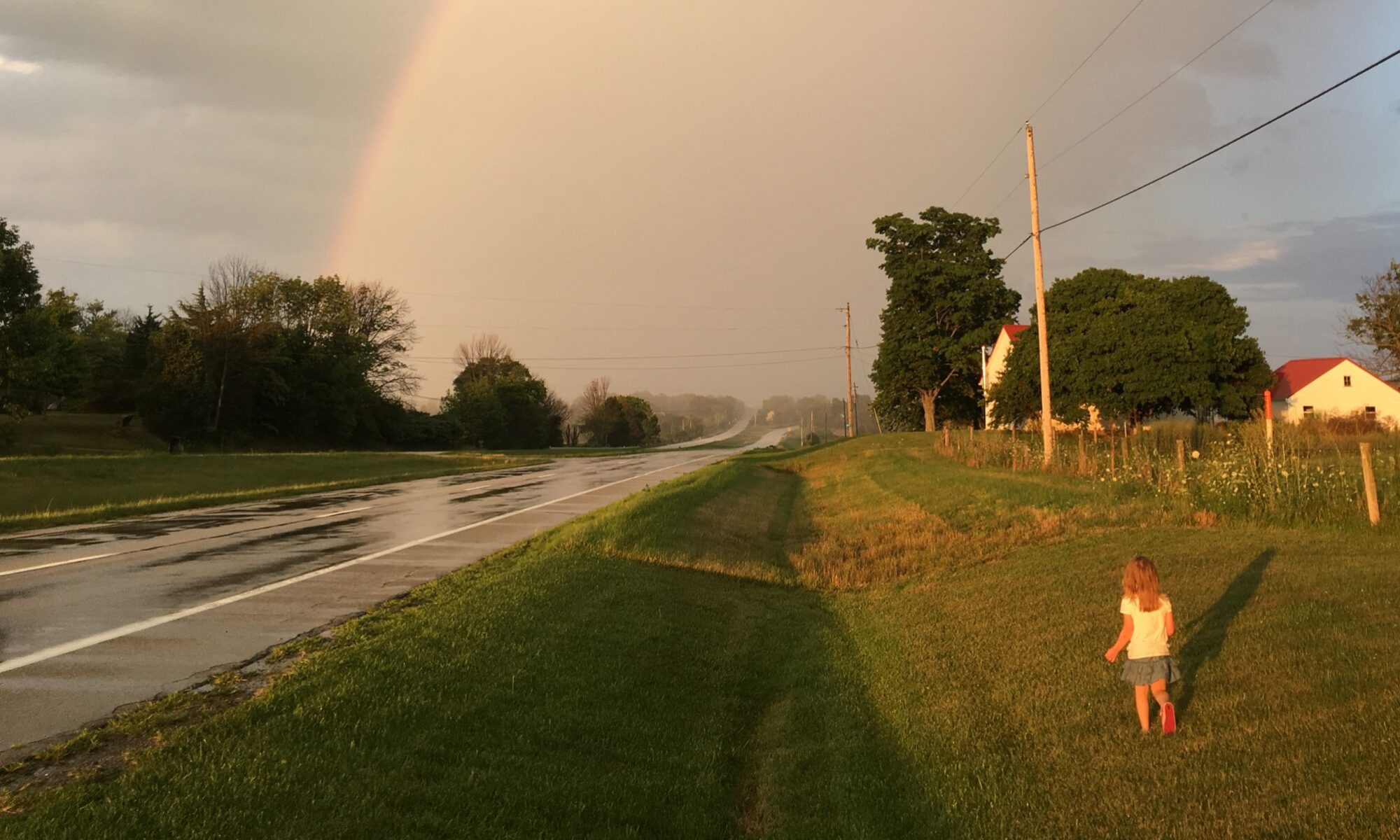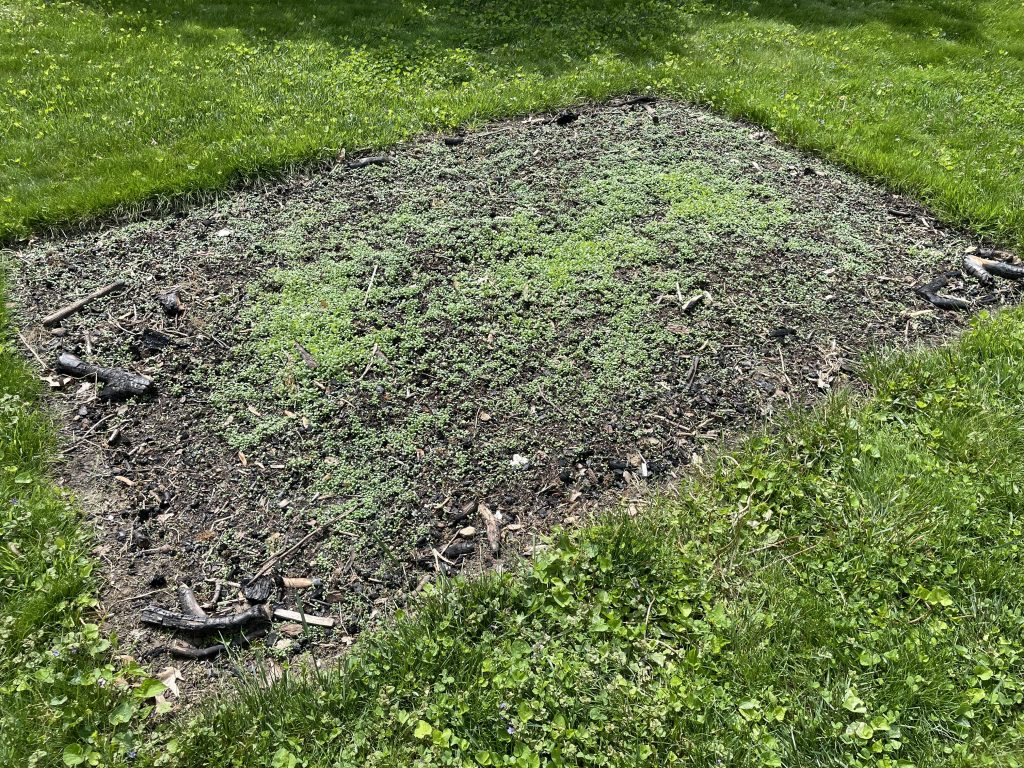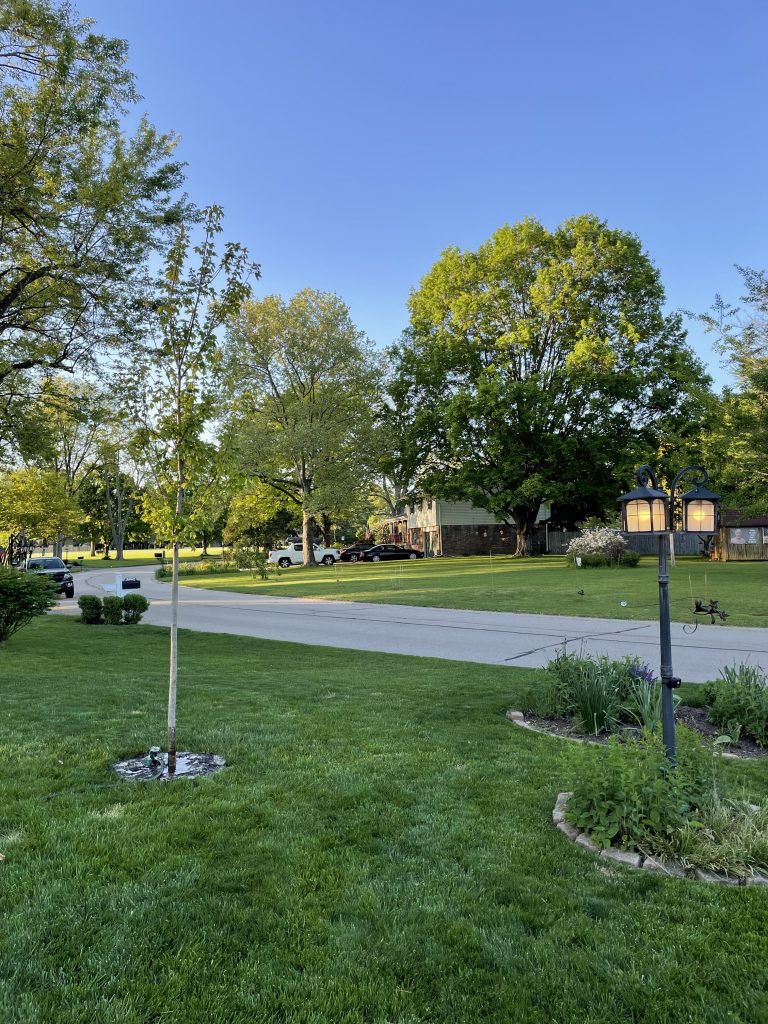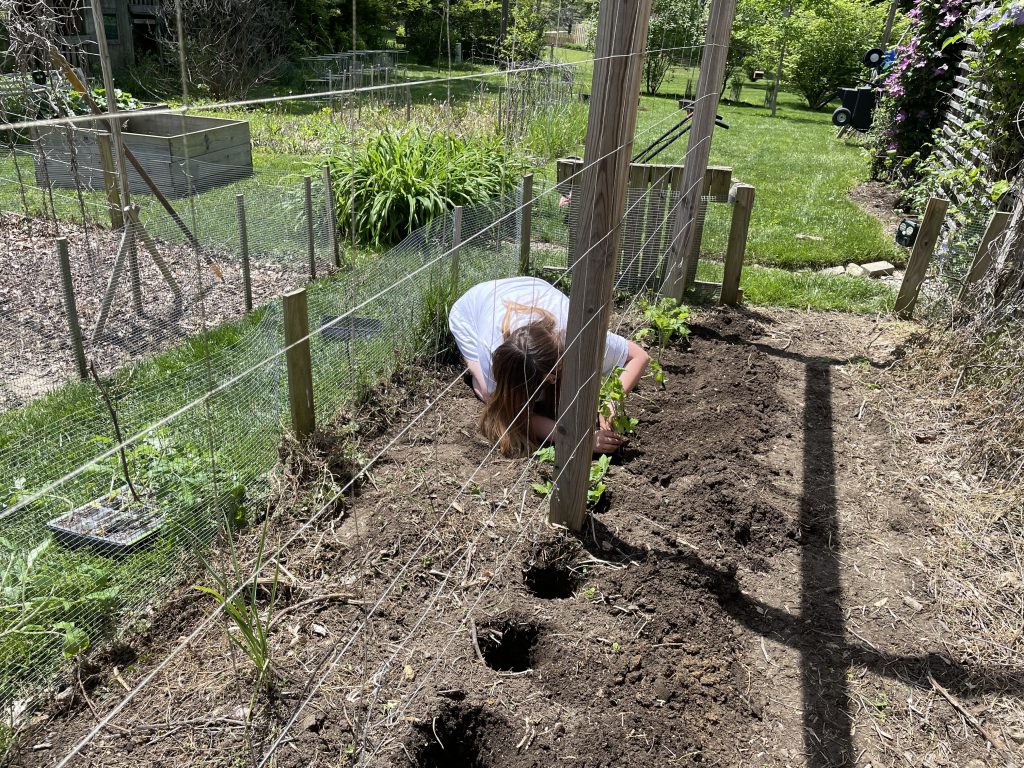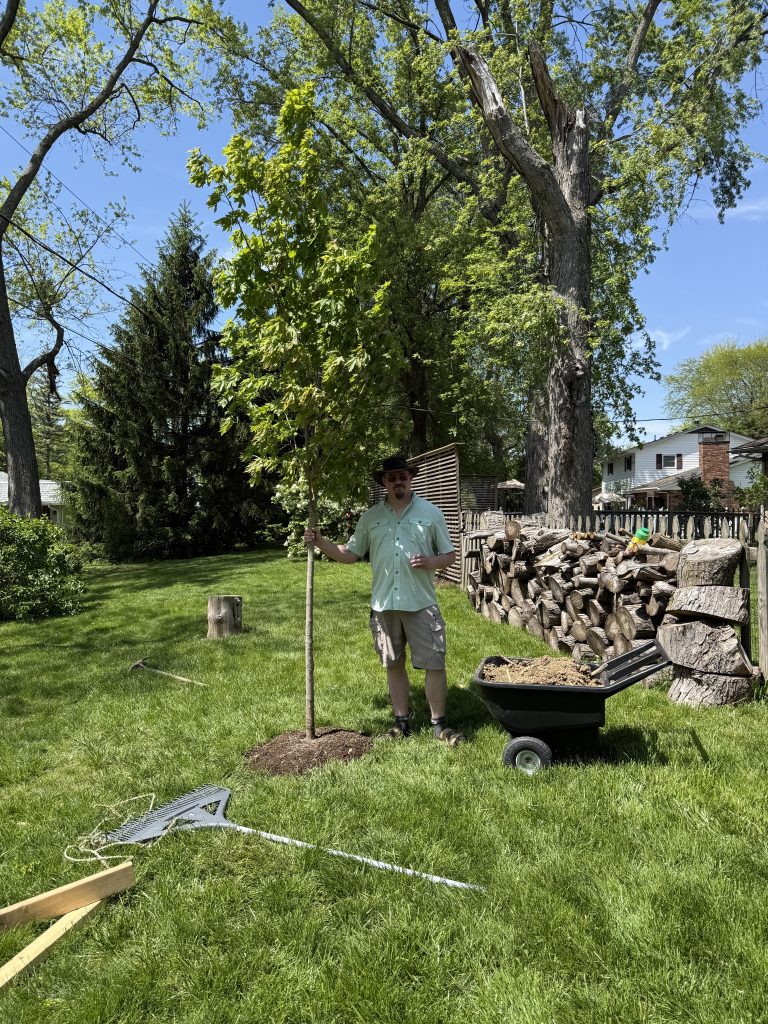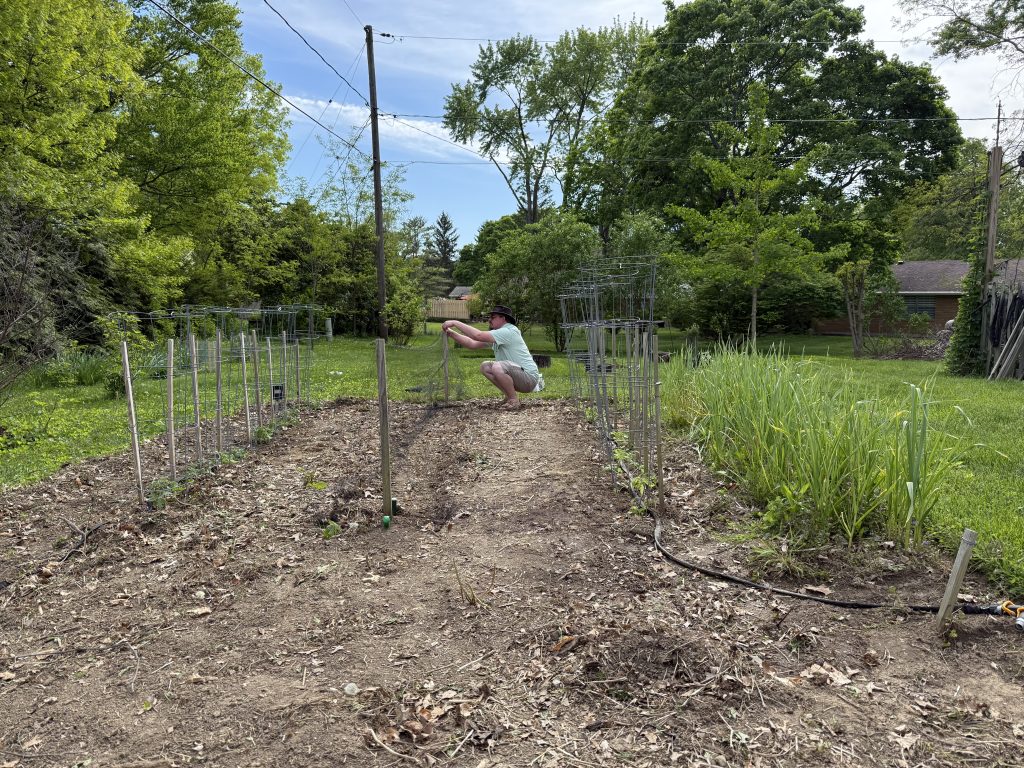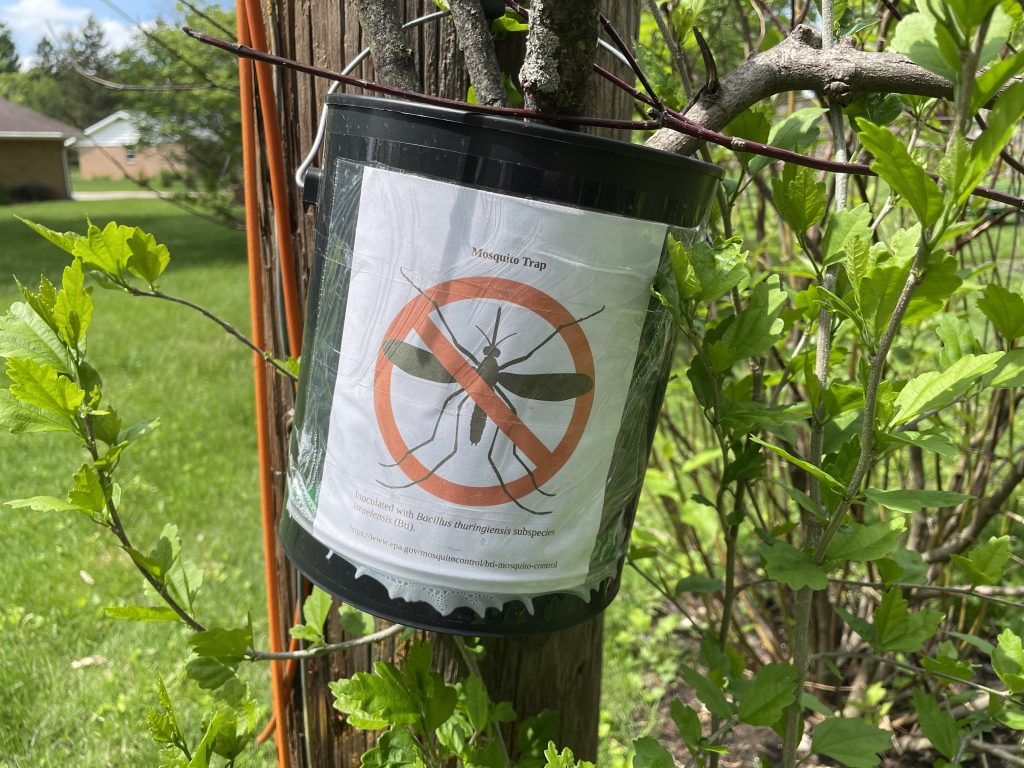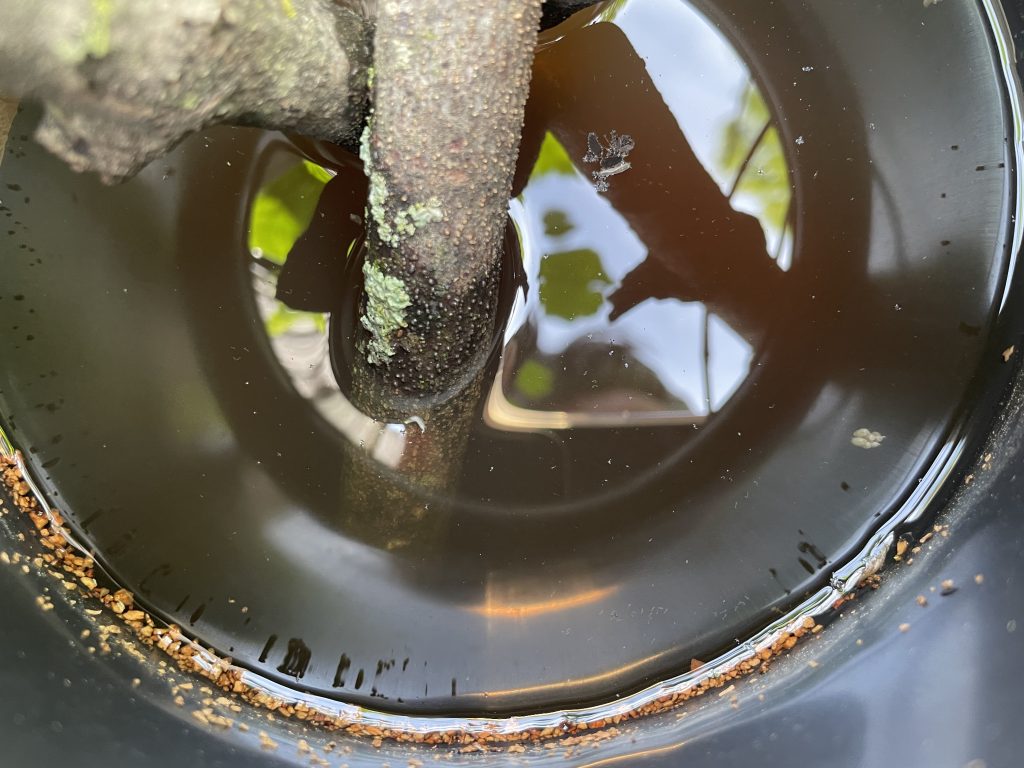In continuing my theme of asinine titles for meteorological terms, here’s a more dramatic sequel to April’s inclement weather.
A particularly nasty bit of weather had descended upon us the evening of May 16, preceded by the familiar calm. And as the wind picked up, I checked the weather radar. This time, I was more concerned than my usual apathetic American High Plains upbringing self would normally be. And this static image doesn’t replicate the still image transitional timeline. There was a very clear storm rotation in progress, and one of the most easily recognized of radar signatures was to our southwest.
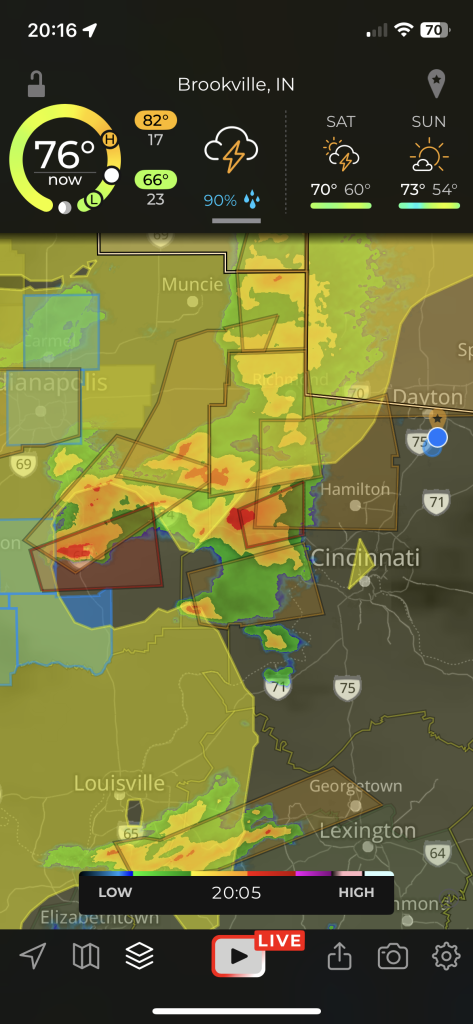
A hook echo, and so well-defined that the NWS had issued a radar-confirmed tornado warning. And it was 100 miles out and on a direct path to us. Admittedly, that’s a bit far to expect a tornado to travel on the ground, but it’s happened before.
There were 5 confirmed tornadoes in Indiana that day, presumably this among them. Fortunately for us, it dissipated before reaching our home. But as the remnants of the storm passed overhead, it was obvious it hadn’t lost its rotation.
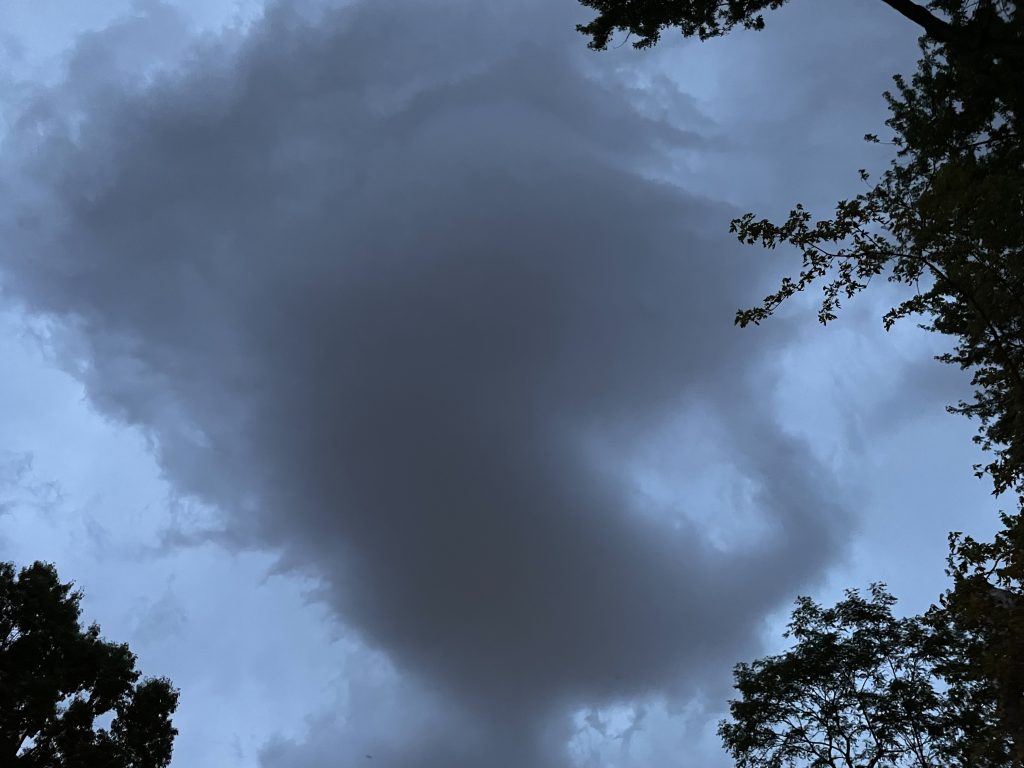

There’s the devil’s sphincter for you.
Out west, these storms were always rain-wrapped, so the funnels were not so clearly defined. They were ominous masses of dark creeping across the cotton fields, and they were clear indications to move your ass. Here though, you can see shapes, and these were the clearest I’ve seen up close. This time, winning the meteorological lottery came with pictures.
(23 people died in the storms that weekend.)
–Simon
